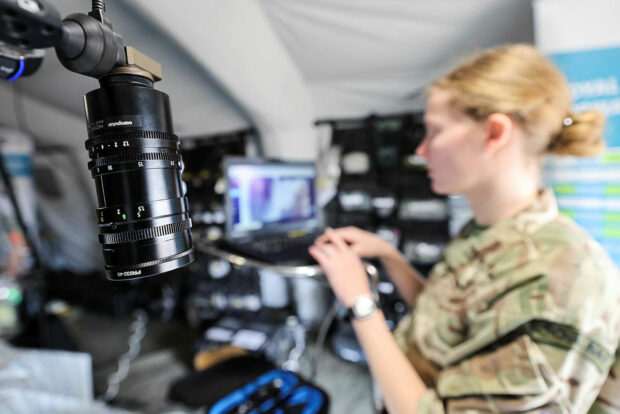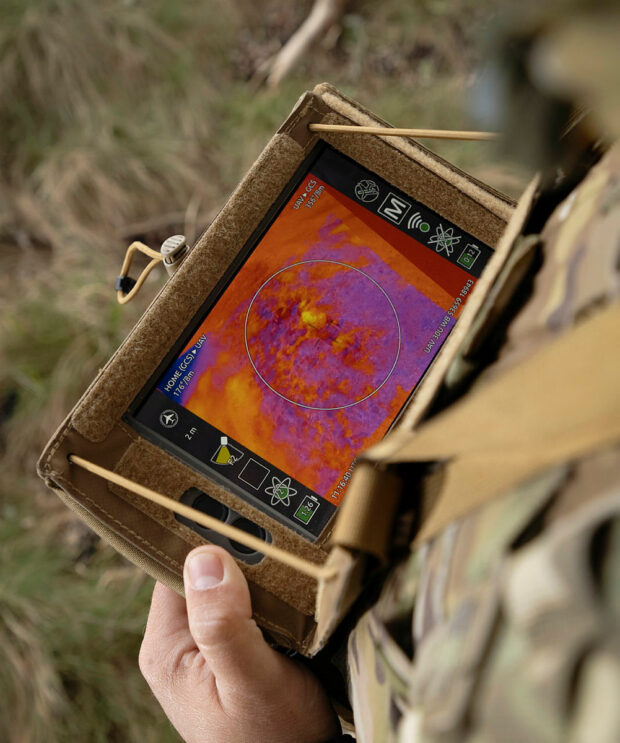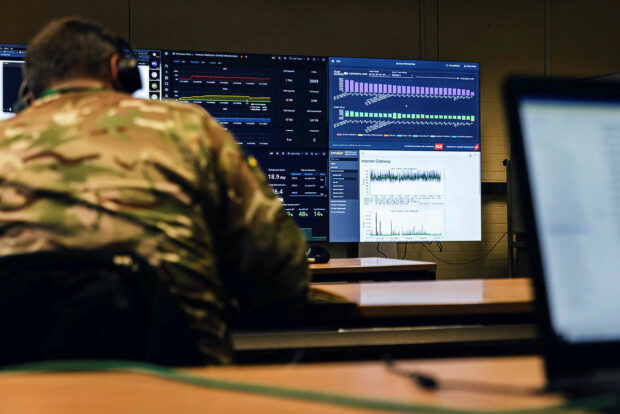Following the successful launch of the Defence Artificial Intelligence (AI) Strategy by the Minister for Defence Procurement in June, we are pleased to announce that the Defence AI Centre is now operational and will enhance Defence’s ability to harness the game-changing power of artificial intelligence to achieve strategic outcomes.

Champion, Enable, Innovate: What is the Defence AI Centre (DAIC)?
We act as a visionary hub, bringing together expertise and capability from a range of teams to support the development, implementation, and adoption of AI across Defence. Our key objectives are to
- Champion the development and use of AI across Defence;
- Enable local adoption of AI by providing common AI services, best practice, and expertise;
- Innovate by developing, delivering, and scaling AI projects that generate breakthroughs in strategic advantage.
The Chief of the DAIC, Air Commodore David Rowland, notes that “Our work cohering, guiding, and developing efforts in AI and AI-enabled autonomous capabilities will play a fundamental role in Defence modernisation and will continue our vital work delivering on the vision and ambitions set out in the Defence AI Strategy.”
We are led by a collaboration between three established organisations in the Ministry of Defence: Defence Digital, the Defence Science and Technology Laboratory, and Defence Equipment & Support’s Future Capability Group. Our federated, collaborative model will ensure that AI project teams across UK Defence have access to the relevant expertise and support throughout their development and implementation journey.
James Gavin is head of the Defence Equipment & Support’s Future Capability Group, which leads on exploring new capabilities to inform decision making within UK Defence. He says: “AI is a priority area of focus for the Future Capability Group. Modern Innovation is all about collaboration, and through the DAIC we work closely with relevant teams to share information, develop best practice and align our priorities to ensure a coherent approach to the development of AI capabilities across Defence.”
We will be working with the best minds to support our Armed Forces, including with partners across government, international partners and allies, industry, and academia. The recent signing of the Statement of Intent for Artificial Intelligence between the UK and US reinforces our intention to pursue beneficial partnerships; with both nations agreeing to collaborate on shaping global AI developments, promoting security, stability, and democratic values.

What is Artificial Intelligence?
Artificial intelligence (AI) can be defined as a family of general-purpose technologies, any of which may enable machines to perform tasks normally requiring human or biological intelligence, especially when the machines learn from data how to do those tasks. As the National AI Strategy notes, these technologies have huge potential to rewrite the rules of whole industries, drive substantial economic growth and transform all areas of life.
Harnessing the potential of AI will be essential to Defence modernisation, enhancing capability across the whole organisation and enabling us to maintain strategic advantage.

‘Show and Tell’ presentation on a range of UK Defence AI projects
In May, we brought together teams from across the DAIC for a ‘Show and Tell’ session, showcasing a range of AI projects currently being undertaken across Defence. Attendees presented ongoing AI projects, sharing details on their development journey and the intended next steps for each project.
In the session we discussed using AI to develop uncrewed ground vehicles; working with industry partners to apply natural language programming techniques to Defence-specific problems; and exploiting AI to allow unmanned aerial vehicles to navigate more covertly towards target locations.
Throughout the workshop we shared examples of best practice, discussed key lessons learned, and began to identify areas for potential collaboration and joint-working – which included sharing advice on how to structure governance and operating models to best exploit rapidly advancing technologies. We also held useful discussions on the potential for future collaboration between the DAIC and the wider AI community, in particular external partners in industry and academia.
One of the presenters at the session was Professor Steven Meers, the Technical Strategy Lead for AI & Data Science at the Defence Science and Technology Laboratory, a key partner organisation within the DAIC. He commented: “The DAIC brings together relevant teams to provide support for AI products across the full delivery lifecycle – from experimentation and innovation through to operationalisation and delivery. This coordinated approach will accelerate the adoption and scale the impact of AI across Defence.”
The session was informative and inspiring – and is only the beginning of DAIC’s plans to cohere, guide, and develop efforts in AI across Defence. We look forward to running more workshops with partners and stakeholders soon!
Next steps for the Defence AI Centre (DAIC)
These are exciting times for AI in UK Defence. Over the next year, we will continue to grow and expand to support the implementation of the Defence AI Strategy, working closely with our Front-Line Commands to ensure that, in terms of AI, the UK has the world’s most effective, efficient, trusted, and influential Defence organisation for our size.
Leave a comment